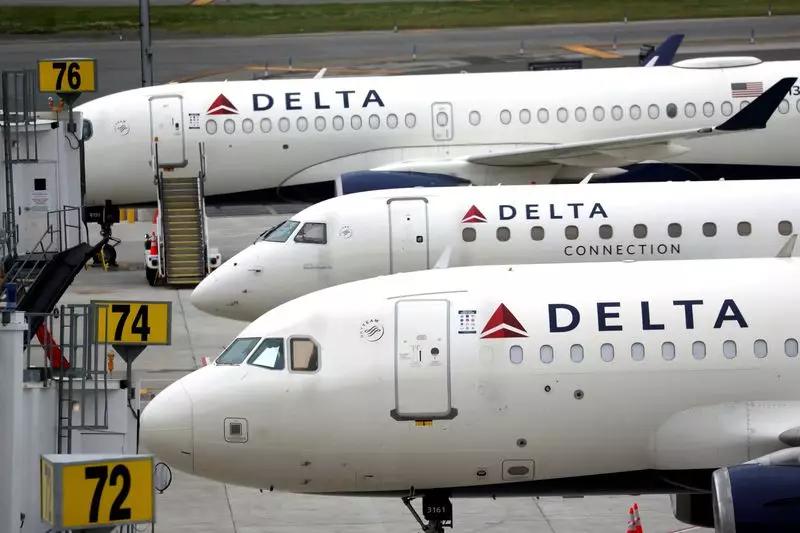In a significant upheaval for the aviation sector, Delta Air Lines has lodged a lawsuit against cybersecurity firm CrowdStrike in response to a catastrophic global software outage that led to extensive flight cancellations and disrupted travel for millions. The incident occurred in mid-July and is reported to have affected approximately 1.3 million passengers, resulting in over $500 million in losses for Delta. This legal action underscores the delicate interplay between technology and operational stability within modern airlines.
Central to Delta’s grievance is a faulty software update propagated by CrowdStrike that reportedly caused around 8.5 million Microsoft Windows-based computers to crash. According to court documents filed in Fulton County, Georgia, Delta alleges that CrowdStrike’s lack of adequate testing led to what they termed a “catastrophic” failure. The airline’s lawsuit raises critical questions about the robustness of cybersecurity protocols and the real-world implications of software updates that are not thoroughly vetted before deployment.
Delta cites that over 7,000 flights were canceled, profoundly affecting passenger plans and raising concerns about the airline’s operational reliability. Furthermore, the situation forced Delta to incur unanticipated legal costs along with significant reputational damage, indicating a ripple effect that extends beyond immediate financial losses.
CrowdStrike has not hesitated to refute Delta’s claims, labeling them as “disproven misinformation.” The firm argues that Delta’s struggles reflect a deeper issue within the airline’s IT infrastructure rather than any significant fault on CrowdStrike’s part. They contend that Delta’s operational challenges in recovery are symptomatic of outdated technology rather than a direct consequence of the faulty update.
Moreover, CrowdStrike’s insistence on minimal liability raises intriguing questions about accountability in digital service agreements. The contrasting experiences of other airlines, which were reportedly less affected, suggest that organizational factors are also at play in assessing risk and resilience.
The severity of the incident prompted the U.S. Transportation Department to investigate the circumstances surrounding the outage. As airlines continue to grapple with the complexities of modern cybersecurity, regulatory bodies may need to play a more proactive role in ensuring that those responsible for digital solutions are held to rigorous standards.
This unfolding saga serves as a cautionary tale for the aviation sector, which increasingly relies on technology to enhance operational efficiency. As companies navigate the labyrinth of digital security, the focus must shift towards establishing stronger protocols for software updates and crisis management strategies.
Delta’s lawsuit against CrowdStrike highlights the critical intersection of cybersecurity and operational integrity within the airline industry. As the case progresses, it will set important precedents regarding accountability in tech partnerships and the expectations placed on both service providers and their clients. With billions invested in technology, airlines must ensure that their cybersecurity frameworks not only prevent breaches but also protect them from the fallout of technological failures. This incident serves as a potent reminder of the perils that can emerge when the complex world of technology intersects with high-stakes industries like aviation.

